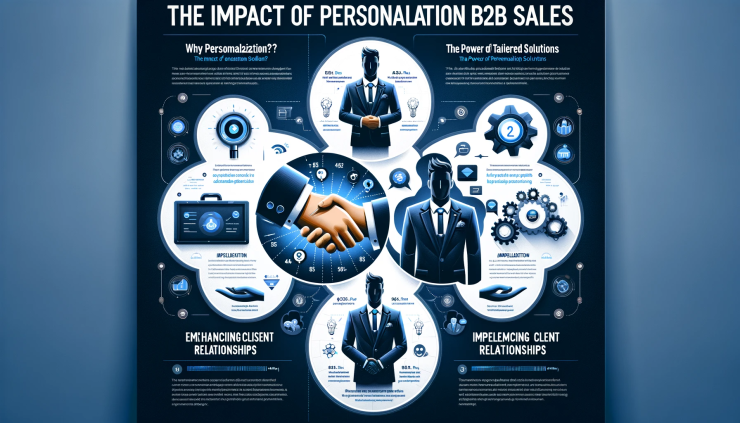by Marco Giunta, originally posted on LinkedIn
Understanding the Role of Personalization in B2B Sales
Exploring the Impact of Customized Experiences
“In today’s competitive market, personalization is not just a luxury—it’s a pivotal factor in our B2B sales strategy.”
Why is personalization crucial in B2B sales?
Personalization in B2B sales is crucial because it allows businesses to tailor their sales approach to meet the specific needs and preferences of each client. This tailored approach can lead to stronger relationships, higher customer satisfaction, and increased sales.
The Power of Tailored Solutions
Crafting Customized Experiences for Each Client
Personalization in B2B sales involves understanding the unique challenges and needs of each business client and customizing the sales approach accordingly. By leveraging data and insights, sales teams can create highly relevant proposals and communications that resonate with the client’s business context. This relevance can significantly enhance the client’s engagement and trust, leading to more successful sales outcomes.
Enhancing Client Relationships
Building Stronger Bonds Through Personalized Interactions
Another aspect of personalization is the development of deeper client relationships. When clients feel that their needs are being acknowledged and addressed, they are more likely to view the relationship as a partnership rather than a transaction. This shift can result in increased loyalty, repeat business, and referrals, which are invaluable in the B2B sector where the sales cycles are longer and the stakes are higher.
How to Implement Personalization in Your B2B Sales Strategy
- Gather Comprehensive Client Data: Collect detailed information about your clients, including their business goals, challenges, and preferences.
- Analyze the Data: Use analytics tools to gain insights into your clients’ behaviors and needs.
- Customize Your Communication: Tailor your emails, proposals, and presentations to address the specific concerns and interests of each client.
- Train Your Sales Team: Ensure your sales team understands the importance of personalization and how to implement it in their sales tactics effectively.
- Use Technology Wisely: Implement CRM and other sales enablement tools to facilitate personalization at scale.
In conclusion, personalization is a key differentiator in B2B sales that can lead to more effective sales strategies and stronger client relationships. By understanding and implementing personalized approaches, businesses can significantly improve their sales outcomes.
